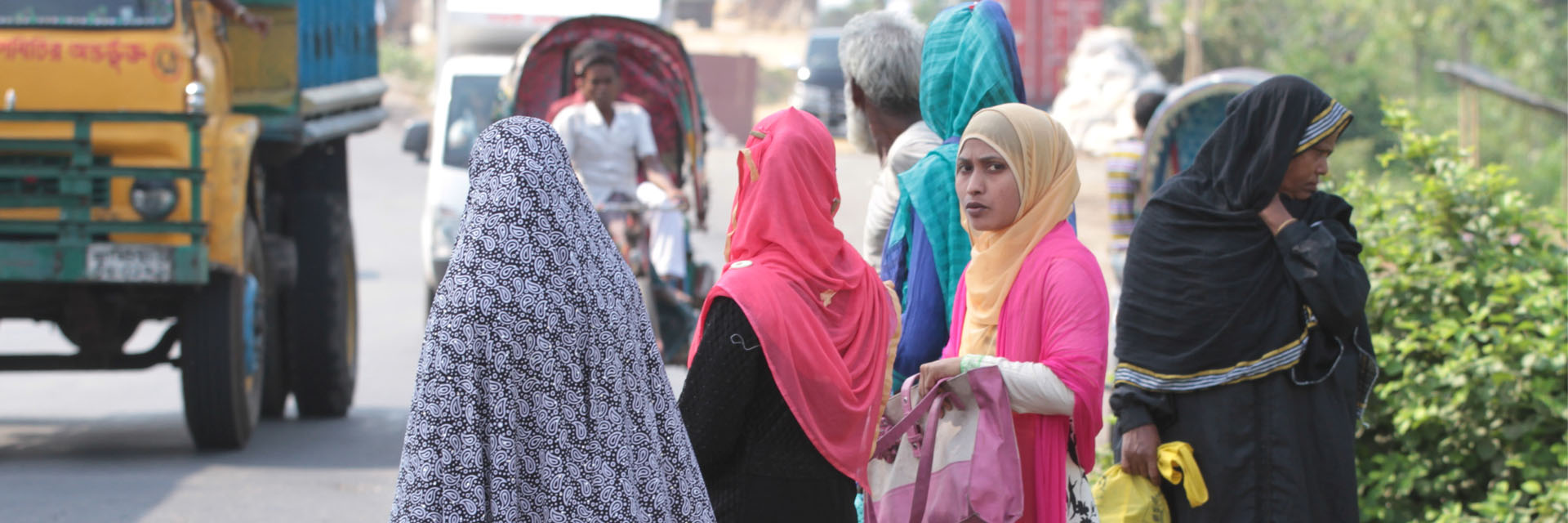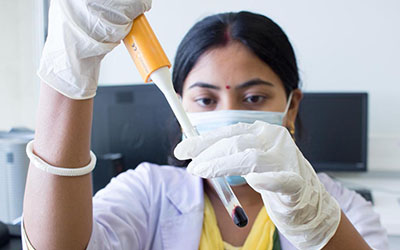Access to diagnosis
In Bangladesh, we actively contribute to the development of the Bangladesh Institute of Tropical and Infectious Diseases (BITID), which houses the Rodolphe Mérieux Laboratory.
Located in Chittagong, The Rodolphe Mérieux Laboratory provides the local population with quality diagnostic testing (routine tests and specialist exams) and trains students in clinical biology and infectious diseases, strengthening local capacities. We participate in strengthening the laboratory, in particular by providing or renovating equipment. Since the beginning of the COVID-19 pandemic, the laboratory has played a major role in the diagnosis for the Chittagong region and has involved a significant increase in its activity.
We also support the hospital laboratory in Shyamnagar in partnership with the NGO Friendship, which works in the poorest communities in Bangladesh.
Enhancing research capabilities
We foster research in Bangladesh by supporting the implementation of new projects at the Rodolphe Mérieux Laboratory in Chittagong. As a member of the GABRIEL network, the Rodolphe Mérieux Laboratory participates in several studies with laboratories in other countries and provides its staff with training courses. We also conduct research to improve the care of the Rohingya refugee populations in the camps not far from the Rodolphe Mérieux Laboratory.
Tuberculosis
The HINTT project, a GABRIEL network multicenter study deployed in Bangladesh, aims to assess new diagnostic tools to predict the effectiveness of anti-tuberculosis treatment. Avoiding the administration of unsuitable and unnecessary treatment reduces drug resistance and improves the cure rate.
Typhoid
Bangladesh is one of the areas with the highest rates of typhoid fever in the world. It is here that we conducted the first validation phase of a new test for detecting and identifying the bacteria responsible for typhoid (Salmonella Typhi and Salmonella Paratyphi A).
Our work has also led to the discovery of new strains of Salmonella Typhi. These typhoid fever bacteria, which are highly resistant to antibiotics, could pose a new epidemic threat. The results were published in the scientific journal mBio. Its main author, Arif M. Tanmoy, from the Child Health Research Foundation in Bangladesh, conducted his research at the Emerging Pathogens Laboratory. The study was carried out as part of the COMPARE project, which aims to develop a global database for the rapid identification of pathogens using next-generation sequencing (funded by the European Union Horizon 2020 program under grant agreement 64347).
Respiratory infections
Living conditions in refugee camps are accelerating the spread of infectious diseases, especially the viruses responsible for respiratory infections, one of the leading causes of child mortality. With our partners, the Institute for Developing Science and Health initiatives (IdeSHi), BITID and iccdr,b, we are conducting a study in Cox’s Bazar camps in the Ukhia region to understand risk factors, provide treatment recommendations, and measure the utility and medical impact of rapid diagnostic tests in health centers. The project is supported by the Bangladesh Ministry of Health.
Following the COVID-19 epidemic, we took part in the NOSO-COR project, a prospective non-interventional hospital-based study whose objective is to describe and document cases of COVID-19, nosocomial transmission in hospitals and infection prevention and control practices and policies in hospitals. In Bangladesh, this study is implemented at the l’Iccdr,b in Dhaka.
Support for mothers and children
As a country with limited resources, which is densely populated and particularly vulnerable to climatic events, Bangladesh faces significant public health issues.
On the Moheshkhali Island, we have partnered with the NGO AMD, Fonds pour Eux and SARPV (Social Assistance and Rehabilitation for the Physically Vulnerable) to build a Center for the care of children with disabilities. This support made it possible to complete the center’s medical equipment and support its initiatives beyond the initial project.


